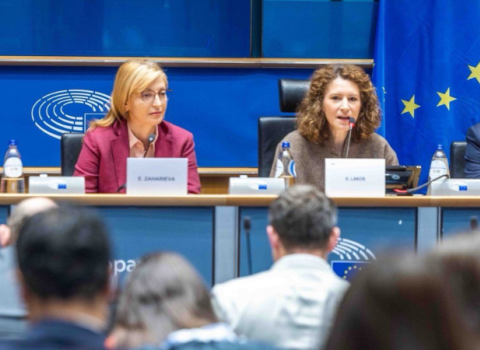The European Commission has always justified its complex grant procedures on the grounds that is has a duty to look after taxpayers’ money. But this cautionary approach has failed to prevent fraud on a massive scale, leading to the obvious conclusion that there needs to be less control, not more.
The European Anti-Fraud Office expects to conclude its investigation into the suspected misuse of EU research grants in four member states in the coming months, hopefully bringing to a close a case that has already led to a criminal investigation in a fifth member state, Italy. Details of the Italian investigation, published last month, covered 22 research projects that received more than €50 million of Framework Programme funding.
The investigation in the four other member states is “well-advanced” and should be concluded “in the near future”, Pavel Bořkovec, a spokesman for the Anti-Fraud Office told Science|Business, declining to go into detail while parts of the case were still ongoing.
In Italy, evidence of fraudulent use of grants was initially picked up by the European Commission’s DG Information Society and Media during its audit work. Further investigations involving a number of agencies revealed networks of inter-related companies operating in several Member States. These networks are suspected of claiming reimbursement of non-existent expenses in an organised manner, using fictitious companies as partners, or sub-contractors, of research project consortia.
“It was a very complex case of fraud,” according to David Boublil, the Commission's spokesman for taxation, customs, audit and anti-fraud. “The structures were deliberately opaque and the methods used similar to money-laundering or other organised crime schemes.”
Since the investigation began in 2008, measures have been taken to prevent the same thing happening again in the future, said Boublil, citing the fine-tuning of IT systems and more training and awareness-raising for project officers.
Later this month the Commission will publish a communication on its anti-fraud strategy. This will “go even further” in outlining the tools for detecting fraud in the EU budget, explained Boublil. He rejects the suggestion that the fraud undermines the Commission’s plan to simplify grant procedures and cut back on red tape. “It shows what the Commission should do to avoid fraud from happening. It does not mean that simplification is not necessary.”
Strengthening the case for simplification
Others agree the egregious nature of this fraud actually strengthens the European Commission’s case for simplifying administrative rules and cutting red tape.
“We need simpler rules that will make fraud more obvious,” MEP Maria da Graça Carvalho told Science|Business. “They managed to get through the complexities [of the existing system].”
Carvalho believes more involvement of the scientific community in evaluating proposals and projects would help eliminate most fraud. “It would be more difficult to get through the controls of the scientific community, because they know each other,” she said.
Preventing fraud and dealing with the EU’s cumbersome grant rules are two separate issues, argues Christopher Hull, the secretary-general of the European Association of Research and Technology Organisations (EARTO). “Sadly there always has been fraud and sadly there always will be, but we shouldn’t mix up complex rules with the fact that fraudsters exist.” EARTO has called for simplification to make participation in Framework Programme projects more attractive and accessible, welcoming several of the Commission’s simplification measures, such as using average personnel costs to ease the administrative burden.
“Simpler rules are better respected and abuses easier to detect,” said Maire Geoghegan-Quinn R&D Commissioner when she announced the proposed simplification measures in January. “It has always been a principle in the Court of Auditors, where I spent ten years.”
Geoghegan-Quinn’s spokesman Mark English cited the replacement of time-consuming audits of hundreds of tiny individual expenditure items with pre-determined lump sums, as an example. This will leave officials and auditors with more time to focus on fighting fraud, he says.
“Commissioner Geoghegan-Quinn has made clear publicly and repeatedly that simplification measures aim to make participation easier, save many millions of euros and deliver better value for taxpayers. It is out of the question that, in advancing this agenda of simplification, the Commission would take or propose any steps that could jeopardise control of taxpayers’ money,” English said.





 A unique international forum for public research organisations and companies to connect their external engagement with strategic interests around their R&D system.
A unique international forum for public research organisations and companies to connect their external engagement with strategic interests around their R&D system.